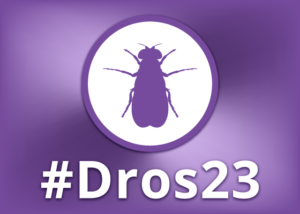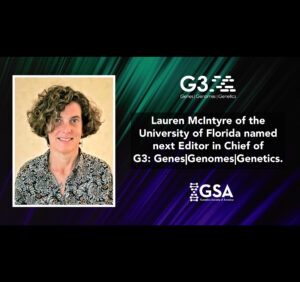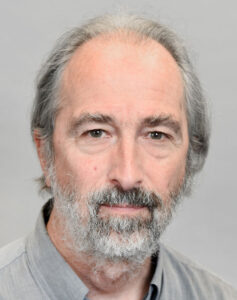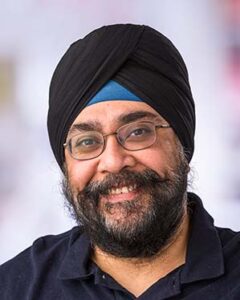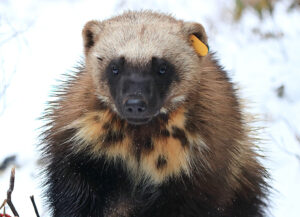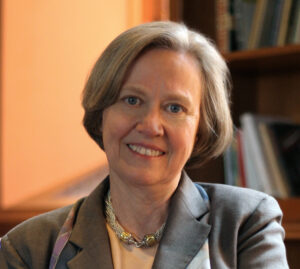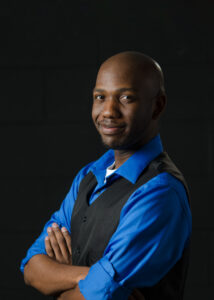Enter your address to receive notifications about new posts to your email.
Featured
-
Featured
New members of the GSA Board of Directors: 2023–2025
We are pleased to announce the election of five new leaders to the GSA Board of Directors: 2023 Vice President/2024 President Mariana Wolfner Distinguished Professor of Molecular Biology and Genetics and Stephen H. Weiss Presidential Fellow My research has focused on the genes and pathways that mediate sexual development and reproduction, primarily in Drosophila. From…
-
Featured
Introducing SNPets
GSA’s new audio interview series is designed to help you discover and share interesting perspectives from the genetics community—even when you only have five minutes to spare. The excitement of science is meant to be shared. What if you could hear scientists share—in their own words—the value of their work using yeast, flies, worms, and other…
-
Featured
Updating our awards portfolio
The Awards Audit Task Force describes their findings and outlines the future of the GSA Awards.
-
Featured
Preview the 64th Annual Drosophila Research Conference
The Annual Drosophila Research Conference started in 1958 in Madison, Wisconsin as a free-form meeting where “people spoke as the spirit moved them.” Now in its 64th year, the meeting has evolved from what one of the founders, Larry Sandler, called “genetic analysis for fun and recreation,” into the premier worldwide meeting of Drosophilists. Over…
-
Featured
Genetics Society of America announces Lauren McIntyre as new Editor in Chief of G3
The Genetics Society of America is pleased to announce that Lauren McIntyre of the University of Florida will become the next Editor in Chief of G3: Genes|Genomes|Genetics beginning in January 2023.
-
Featured
2022 Thomas Hunt Morgan Medal: Michael Lynch
Ever since Charles Darwin proposed the idea of natural selection in 1858, biologists have been pondering exactly how selection works, somehow driving the evolution from single-celled life to the wide array of complex vertebrates that now populate the planet. As advances in technology have enabled genomic mapping at increasingly finer resolution, the questions have only…
-
Featured
2022 Novitski Prize: Harmit Malik
Harmit Malik loves conflict—genetic conflict, that is. “I’m really interested in this idea that components of the same genome, or components of different genomes, are constantly doing battle with each other,” says Malik, who heads a lab at the Fred Hutchinson Cancer Research Center. To understand genetic conflict, Malik focuses on the parts of the…
-
Featured
Wolverine genome assembly sets a standard for conservation geneticists
Chromosome-level assembly of the North American wolverine sets a new standard for the weasel (Mustelidae) family.
-
Featured
2022 Beadle Award Winner: Shirley Tilghman
Becoming the president of a world-class university isn’t something that typically happens “by accident,” but that’s exactly how Shirley Tilghman describes it. “I did not intend to be a university president,” Tilghman says. “I probably had the steepest learning curve of any university president ever.” In 2000, Tilghman was serving as founding director of the…
-
Featured
GSA Welcomes ECLP Editor
The GSA team welcomes Vincent Price, PhD, as the new Early Career Leadership Program Editor! Vincent is a talented editor with years of experience under his belt as a consultant and published author, alongside a number of years teaching English and French at secondary and post-secondary levels. Can you tell us a little bit about…
-
Featured
Trans exclusion in sports: a discriminatory and erroneous tradition
I am a former women’s NCAA swimmer, and I support Lia Thomas. Guest post by Sam Sharpe PhD. interACT: Advocates for Intersex Youth is the oldest and largest nonprofit dedicated to advancing the legal and human rights of people born with intersex traits. Founded in 2006, interACT oversees the largest youth-led intersex advocacy group in…




